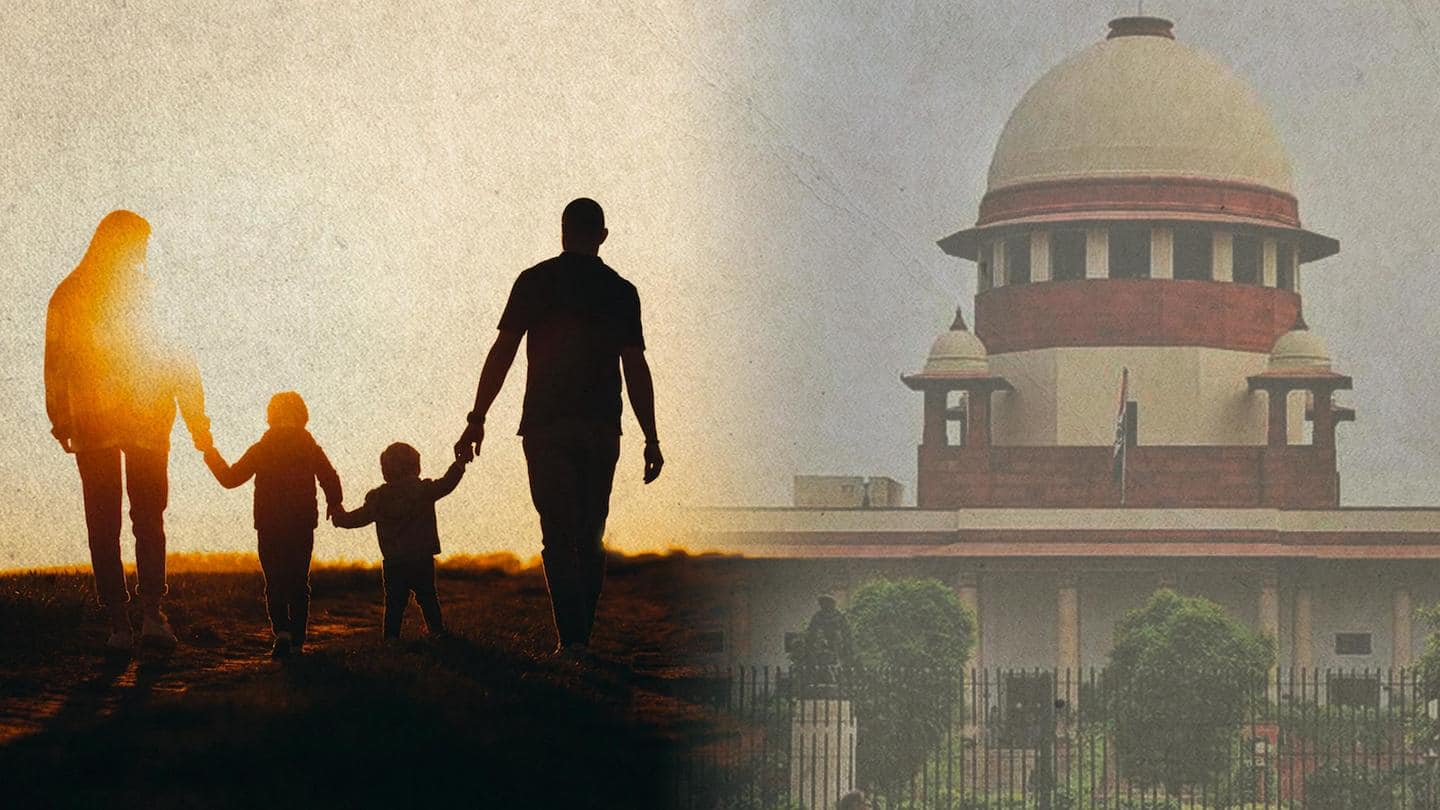
Unmarried partnerships, queer relationships count as family: Supreme Court
What's the story
Familial relationships may take the form of domestic, unmarried partnerships, or queer relationships, said a Supreme Court bench in a noteworthy observation.
The significant statement from the top court expands the definition of families and suggests that an "atypical" family unit is as authentic as its traditional counterpart.
The bench also said that such units deserve equal protection under the law.
Here's more.
Details
Predominant assumption is 'family is a single, unchanging unit'
In an order uploaded on Sunday, a two-member SC bench of Justices DY Chandrachud and AS Bopanna said that the predominant understanding of "family" (in law and society) is that "it consists of a single unchanging unit," which has a mother, father, and children.
However, the court said, "This assumption ignores...the many circumstances which may lead to a change in one's familial structure."
SC
'Many families do not conform to expectations'
Suggesting that many families do not conform to this societal expectation, the order said, "Familial relationships may take the form of domestic, unmarried partnerships or queer relationships."
The observations are significant due to longstanding protests by LGBTQ+ activists to recognize queer marriages.
Additionally, the comments also support the idea of unmarried couples living together and choosing to start a family.
Case
What case was the SC hearing?
The SC was hearing the case of a central government employee denied maternity leave.
The woman took child care leave earlier to look after her husband's child and was apparently denied maternity leave for her biological child.
She married a man who had two children from his previous marriage.
"Guardians and caretakers of children may change with remarriage, adoption, or fostering," the court noted.
Quote
SC expands the definition of family
According to Live Law, the SC bench noted, "These manifestations of love and of families may not be typical but they are as real as their traditional counterparts. Such atypical manifestations...are equally deserving...of protection under law...[and] the benefits available under social welfare legislation."
Information
What else did the court say?
Further, the bench said the "black letter of the law" must not be relied on to put such families in a difficult position.
"The same undoubtedly holds true for women who take on the role of motherhood in ways that may not find a place in the popular imagination," its order read.
It stated the law must not put "non-traditional" mothers at a disadvantage.